Exodus 7
Read the Text
KJV
King James Version
NRSV
New Revised Standard Version
NIV
New International Version
LEB
Lexham English Bible
HEB
Hebrew Bible
ASV
American Standard Version
NET
New English Translation
Summary
The Lord tells Moses to go to Pharoah once again and give him God’s message. Aaron’s staff becomes a serpent before Pharaoh. Pharaoh’s magicians also turn staffs into serpents, but Aarons serpent devours their serpents. The Nile turns to blood.
| KJV | JST |
|---|---|
| (1) And the Lord said unto Moses, See, I have made thee a god to Pharaoh: and Aaron thy brother shall be thy prophet. | (2) And the Lord said unto Moses, See, I have made thee a prophet to Pharaoh: and Aaron thy brother shall be thy spokesman. |
| (2) Thou shalt speak all that I command thee: and Aaron thy brother shall speak unto Pharaoh, that he send the children of Israel out of his land. | (2) Thou shalt speak unto thy brother all that I command thee: and Aaron thy brother shall speak unto Pharaoh, that he send the children of Israel out of his land. |
| (3) And I will harden Pharaoh’s heart, and multiply my signs and my wonders in the land of Egypt. | (3) And Pharaoh will harden his heart, as I said unto thee, and thou shalt multiply my signs and my wonders in the land of Egypt. |
| (4) But Pharaoh shall not hearken unto you, that I may lay my hand upon Egypt, and bring forth mine armies, and my people the children of Israel, out of the land of Egypt by great judgments. | (4) But Pharaoh will not hearken unto you, therefore I will lay my hand upon Egypt, and bring forth mine armies, and my people the children of Israel, out of the land of Egypt by great judgments. |
| (9) When Pharaoh shall speak unto you, saying, Shew a miracle for you: then thou shalt say unto Aaron, Take thy rod, and cast it before Pharaoh, and it shall become a serpent. | (9) When Pharaoh shall speak unto you, saying, Show a miracle that I may know you: then thou shalt say unto Aaron, Take thy rod, and cast it before Pharaoh, and it shall become a serpent. |
| (13) And he hardened Pharaoh’s heart, that he hearkened not unto them; as the Lord had said. | (13) And Pharaoh hardened his heart, that he hearkened not unto them; as the Lord had said. |
Commentary
Bible Central Commentary
These free resources were developed for use in the free ScripturePlus app. Many of the contributors are professors of religion and ancient scripture at Brigham Young University.
Wally Breitenstein, “Exodus 7–13,” in Exodus, Old Testament Minute Commentary Series, ed. Taylor Halverson (Springville, UT: Book of Mormon Central, 2021).
Historical Commentaries
Many of the commentaries below are in the public domain and were authored over 100 years ago. In many cases, they do not reflect the findings of modern scholarship, but they may be helpful for understanding the history of biblical scholarship.
Videos
Watch selected videos on this chapter of the Bible to enhance your study. Note: Not all videos included come from a Latter-day Saint perspective. Inclusion on this list should not imply endorsement for all content.
Pharaoh Hardened His Heart (Exodus 7)
Book of Mormon Central
Overview: Exodus 1-18
BibleProject
The Book of Exodus - Part 1
BibleProject
Exodus Rediscovered: Documentary
InspiringPhilosophy
Historical Settings
Time
*All Dates Are Approximate, according to the narrative of the Bible. These dates may reflect literary significance as opposed to the precise dates of history.
See Biblical Chronology- 1446 BC
Further Reading
Book of Mormon Central, “Why Does the Book of Mosiah Refer to the Exodus Narrative? (Mosiah 11:27)” KnoWhy 416 (May 16, 2019).
S. Kent Brown, “The Exodus Pattern in the Book of Mormon,” BYU Studies 30, no. 3 (1990): 111–126.
George A. Horton Jr. “Insights into Exodus, Leviticus, Numbers, and Deuteronomy,” in The Joseph Smith Translation: The Restoration of Plain and Precious Things, ed. Monte S. Nyman and Robert L. Millet (Provo, UT: Religious Studies Center, Brigham Young University, 1985), 71–88.
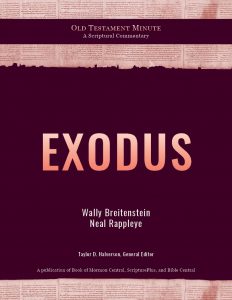

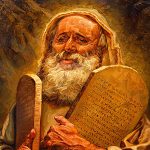

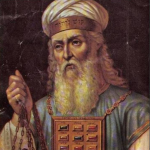

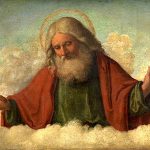
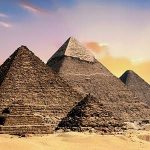

Complete Commentary on the Whole Bible
Matthew Henry (1706)
Commentary on the Bible
Adam Clarke (1831)
Expository Notes of Dr. Thomas Constable
Thomas Constable
Rashi’s Commentary
Rashi (Shlomo Yitzchaki)
Notes on the Bible
Albert Barnes (1834)
Exposition of the Entire Bible
John Gill (1746–63)
Biblical Commentary on the Old Testament
Carl Friedrich Keil and Franz Delitzsch (1857–78)
Explanatory Notes on the Whole Bible
John Wesley (1754–65)